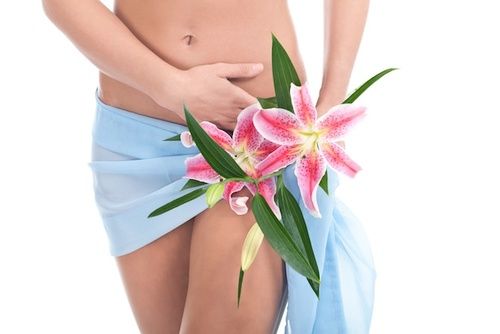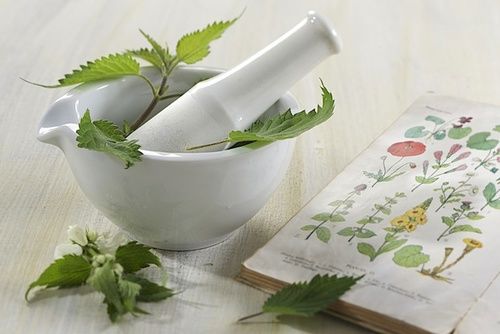Vaginitis: symptoms, causes, all remedies
Vaginitis is inflammation of the vagina that can cause symptoms such as vaginal discharge and intimate itching . However, due to infections or poor hygiene, it can also depend on food deficiencies.
Let’s find out better.
> Symptoms of vaginitis
> Causes
> Diagnosis
> Treatments for vaginitis

Symptoms of Vaginitis
The first weapon to defeat vaginitis is to recognize its symptoms: burning, constant urge to urinate, dull pain in the lower abdomen, sometimes accompanied by blood in the urine. Sexual intercourse, constipation and menopause are factors that tend to facilitate the establishment of pathogenic microorganisms.
Causes
This inflammation is usually due to infections (especially Trichomonas vaginalis and Candida albicans ), food shortages or poor intimate hygiene.
After menopause it can also be caused by an alteration of the vaginal mucosa ( atrophic vaginitis ), which becomes drier and thinner due to the drop in estrogen .
There is a distinct difference between cystitis and vaginitis, which are often confused.
While vaginitis is inflammation that affects the vagina, cystitis is essentially an infection that affects the urinary tract.
In addition to the remedies listed below, remember that for prevention it is good to keep in mind two precautions: do not abuse intimate cleansers, which can alter the pH and lower the body’s defenses ; do not wear jeans or trousers that are too tight, in order to avoid the nesting of bacteria.
Diagnosis
An empirical test to understand if the diagnosis is cystitis or vaginitis consists in peeing in the bidet with the genitals immersed in water: if we feel pain while urinating it means that the inflammation is in the urinary tract. In cases of relapsing vaginitis, culture can be performed on a vaginal swab . The diagnoses of vaginitis, as well as cystitis, are on the rise: according to the numbers, the incidence is in the order of 11-30 new cases per 100 women per year. And 60% of the female population reports at least one episode of this infection in their lifetime. In many cases, there is recidivism: one in 4 recurs, with at least one relapse within six months and three episodes within a year.
The lowering of the immune defenses is closely linked to the way in which we react to stress.
TREATMENTS FOR VAGINITIS
Nutrition in case of vaginitis
The main nutritional indication in vaginitis is to avoid refined sugars : when it is bacterial in nature, the proliferation of bacteria is favored by sugar.
Among the causes of inflammation there is an alteration of intestinal permeability with the passage of bacteria to other districts such as the uro-genital one.
To maintain a good intestinal balance and an adequate bacterial flora it is necessary to reduce industrialized foods such as sugary drinks and packaged fruit juices, alcohol, coffee, cheeses and sausages.
Foods such as chilli, pepper and spicy foods that could worsen the symptoms associated with burning should be avoided during the acute attack.
Prefer a diet rich in fiber and whole grains, fresh seasonal fruit and vegetables, preferably diuretic: fennel, green leafy vegetables, cucumbers, Belgian endive, pineapple, mandarins, strawberries, melon, watermelon. A particularly useful food in this case is blueberry , whose juice shows diuretic and purifying activities of the urinary tract and prevents the adhesion of bacteria to the walls of the bladder.
It is important to restore a healthy intestinal bacterial flora with species-specific probiotics
Herbal remedies
The first recommended herbal remedy is calendula . A cream is the most suitable, and if burning and itching prevail, you can resort to vaginal suppositories of Calendula or Hydrastis in the evening. In the morning, a lavender with warm water combined with 30 drops of calendula mother tincture. (Follow the therapy for 5 evenings and 5 mornings). Calendula is recommended due to its wonderful antimicrobial and antiseptic activities and is very useful against both bacteria and fungi.
If the burning increases, the thyme and sage -based vaginal vules are excellent , 1 in the evening for 5 evenings, then applications 1 evening a week for 1 month. Add thyme and cinnamon in essential oil in the morning to local therapy . If the disorder is relapsing, another herbal remedy is Malaleuca Alternifolia , a blend of essential oil in vegetable oil for 5 days.
As with phytotherapeutic remedies for the treatment of cystitis, even in the case of inflammation, remedies with antiseptic and anti-inflammatory action such as Cranberry and grapefruit are used .
You can learn more about herbal remedies for cystitis

Bach flowers for vaginitis
Physical pathologies such as vaginitis or cystitis are not treated directly with Bach flowers, which act mainly on the emotional state that leads to the onset of a certain disorder.
Emotional inflammation can be associated, especially when it recurs, with a couple’s discomfort that occurs precisely in the moments when one is under pressure, before or after a particularly problematic sexual intercourse. Frustration , disappointment and anger can manifest with cystitis or vaginitis, therefore, personalized blends will need to take these analogies into account to modify these negative emotions and thus facilitate the healing process.
Traditional Chinese Medicine
The stimulation of the points in case of vaginitis reduces the stage of inflammation and is functional to reduce the burning and counteract the infection that triggers the symptoms. The relevant organ is the bladder and it involves strengthening the immune system by pressing or inserting needles into:
- TAI YUAN (on the transverse crease of the wrist, in the depression outside the radial artery), which tones the energy of the Spleen and Lung and regulates the fluid balance;
- TAI CHONG (on the back of the foot, in the depression distal to the joint between the first and second metatarsals), which tones the liver and the biliary vesicle;
- WEI CHONG (in the center of the popliteal fossa), which purifies the heat and strengthens the lumbar area).
Aromatherapy for vaginitis
Aromatherapy uses essential oils with antibacterial and bacteriostatic action in the treatment of urinary tract infections . These essences are taken by mouth 2 drops in a teaspoon of honey 1-3 times a day. Among the most suitable we find:
- Juniper essential oil: antiseptic of the urinary tract , like all essential oils it has an anti-infective and antibiotic action, but in the case of juniper, it is specific for the genitourinary system. It is indicated to stimulate diuresis and in case of cystitis, edema, lymphatic stasis, water retention, cellulite;
- Eucalyptus essential oil: it also has an effective antibacterial activity very suitable for diseases of the urogenital tract in case of cystitis, leucorrhea and candidiasis, for which it is also recommended for the deodorant effect;
- Thyme essential oil: it is one of the most powerful remedies against bacterial infections affecting the urinary tract, respiratory system and intestine, caused by proteus mirabilis bacteria, enterococci, staphylococci, streptococci, pneumococci, alcaiescens dispar, neisseria, corynebacteria, in the presence of candidiasis, cystitis enterocolitis, leucorrhoea;
- Basil essential oil: it rebalances the intestinal flora , for this reason it is used to restore the optimal microbiological and physiological conditions of the bacterial flora; and to protect it from acid fermentation or from infectious attacks by fungi, yeasts and Gram enterobacteria.
Homeopathy
Check your food intolerances and also take a bud extract Vaccinium vitis idaea MG in drops. The buds of the cranberry have an antispasmodic, pain-relieving and carminative action. Take 50 drops of Vaccinium vitis idaea MG with water before lunch and before dinner for at least 6 weeks.
Regarding the infections that are often linked to inflammation, we remind you that urinary infections in homeopathy are the expression of a generic condition of precarious health that has transformed the body into a soil for bacteria. Homeopathic treatment in case of cystitis therefore aims at a profound action to stop the chronicization of the infectious process. In case of acute cystitis, the treatment includes:
Arsenicum album 9CH (5 granules, 3 times a day), indicated to reduce the burning sensation and in case of compromised general conditions, with fever, weight loss;
Cantharis 7 CH (5 granules, every 2-4 hours),homeopathic preparation derived from cantharide, a beetle insect of the Vesicanti family used in case of inflammatory and infectious processes in the urinary level. Another homeopathic remedy is Mercurius corrosivus 7 CH ( 5 granules, every 2-4 hours) or alternatively Serum anticolibacillaire 3 DH (1 vial, 3 times a day).
Exercises
Movement allows the body to maintain its own balance and therefore to keep the level of immune defenses high. Exercising is important, because it regulates the body and helps the immune system work. Good personal hygiene is essential.
It is advisable to rinse with water above all and, once a day at most two, use a little bicarbonate in the bidet, or some delicate calendula or propolis soap. Better to boil disinfectant soaps, whether chemical or natural, if we are healthy. Avoid deodorized pads or clothing that is too tight , which compresses the vulva. Undergarments must be washed in the washing machine at 60 ° , but you do not need to disinfect them or even boil the sheets trying to destroy bacteria.
Yes to all exercises that promote relaxation of the pelvic muscles, which belong as much to yoga (excellent as it also combines breathing and meditation) as to gentle gymnastics. Yes to walks (always avoiding tight clothing, rubbing could cause further discomfort).
Physical activity must not be excessive or intense, but must serve to rebalance the harmony of the body. An exercise to promote intestinal peristalsis , and therefore defend against the attack of bacteria, is to hold a chair and bend the knees until the pelvis is close to the heels without tilting the back. Another useful exercise which, by reactivating blood circulation in the kidney area, facilitates their work: lying with the stomach on the ground and the arms folded and crossed under the chin, lift the legs alternately, maintaining the position for 5 to 10 seconds, trying at the same time not to move the pelvis away from the floor.
Prevention
In addition to the remedies listed, remember that for prevention it is good to keep in mind two precautions : do not abuse intimate detergents, which can alter the pH and lower the body’s defenses ; do not wear jeans or trousers that are too tight, in order to avoid the nesting of bacteria.






























+ There are no comments
Add yours